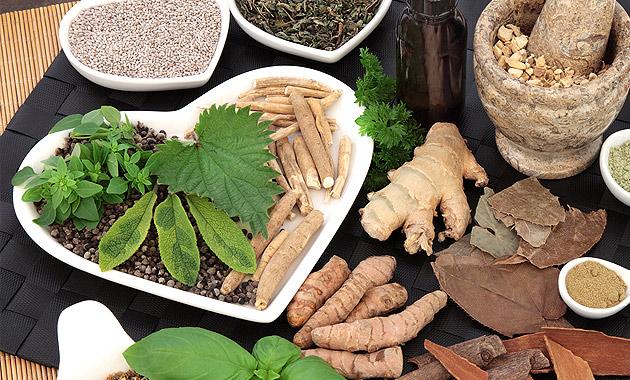In a world where stress feels like the new normal, adaptogens continue to gain popularity as natural, plant-based allies for helping the body adapt and thrive. While names like Ashwagandha and Rhodiola are now familiar to many wellness clients, a new wave of next-generation adaptogens is emerging—backed by promising clinical research and centuries of traditional use.
If you run a holistic, wellness, or beauty-based business, understanding these lesser-known adaptogens can help you educate your clients and offer cutting-edge solutions for stress, fatigue, hormone balance, and more.
Let’s dive into Adaptogens 2.0 — what they are, why they matter, and how you can start integrating them into your offerings.
🌿 What Are Adaptogens (and Why Are They Still Relevant)?
Adaptogens are herbs and botanicals that help the body resist and recover from physical, emotional, and environmental stressors. They don’t force a specific reaction—instead, they support balance (or “homeostasis”) in the body’s systems, especially the nervous system, immune function, and endocrine (hormone) health.
But the field of adaptogens is evolving. New research is uncovering lesser-known herbs with adaptogenic properties, and consumers are becoming more curious—and more discerning—about what really works.
🌟 Meet the Next Generation of Adaptogens
1. Rhaponticum (Rhaponticum carthamoides)
Also known as: Maral root
Traditionally used in: Siberian and Russian herbal medicine
Key benefits:
- Enhances physical endurance and recovery
- Supports muscle growth and strength
- Balances mood and mental clarity
Backed by research:
A 2022 study published in Phytotherapy Research found Rhaponticum extract improved fatigue resistance and promoted faster muscle recovery in endurance athletes. It’s rich in ecdysteroids, plant compounds known to support anabolic (muscle-building) activity without hormonal side effects.
Use it for: Clients recovering from burnout, intense physical training, or long illness.
2. Schisandra (Schisandra chinensis)
Also known as: The “five-flavor berry”
Traditionally used in: Traditional Chinese Medicine and Russian herbalism
Key benefits:
- Enhances liver detoxification
- Improves mental focus and resilience
- Regulates cortisol and supports adrenal health
Backed by research:
Multiple studies (including a 2021 meta-analysis in Frontiers in Pharmacology) show Schisandra’s impact on cognitive performance, stress resilience, and fatigue reduction. It also shows liver-protective and antioxidant properties.
Use it for: Clients needing hormonal balance, liver support, or mental clarity under pressure.
3. Eleuthero (Eleutherococcus senticosus)
Also known as: Siberian ginseng (though not a true ginseng)
Key benefits:
- Supports immune resilience
- Improves stamina and mental energy
- Balances blood sugar and cortisol levels
Backed by research:
A 2023 review in Journal of Ethnopharmacology confirmed Eleuthero’s role in reducing physical and mental fatigue in high-stress environments, especially in shift workers and students.
Use it for: Clients who feel “wired but tired,” immune-compromised, or mentally foggy.
4. Tulsi (Ocimum sanctum)
Also known as: Holy basil
Traditionally used in: Ayurvedic medicine
Key benefits:
- Lowers anxiety and stress-related inflammation
- Supports metabolic health and blood sugar balance
- Boosts mood and sleep quality
Backed by research:
Recent clinical trials (e.g., Evidence-Based Complementary and Alternative Medicine, 2022) show Tulsi significantly reduces generalized anxiety and improves sleep quality, even at low doses.
Use it for: Anxious, overwhelmed clients or those experiencing poor sleep due to stress.
💡 How to Integrate Adaptogens into Your Practice
Whether you’re a holistic therapist, nutritionist, or skincare professional, here are ways to bring Adaptogens 2.0 into your offerings:
- Create calming rituals using herbal teas or tinctures featuring lesser-known adaptogens.
- Recommend professional-grade supplements with clean formulations backed by research.
- Educate clients through content—blogs, social media posts, or workshops on adaptogen use for stress, skin, and energy.
- Infuse products (if you’re in beauty or bodywork) with adaptogenic ingredients—Schisandra-infused oils or Tulsi-based toners can offer a therapeutic boost.
⚠️ A Quick Note on Safety
While adaptogens are generally well tolerated, it’s essential to consider individual health conditions and medications. Encourage clients to consult their healthcare provider before starting any new herbal protocol—especially if pregnant, nursing, or on medication.
Final Thoughts
Adaptogens aren’t just a wellness buzzword—they’re a powerful, research-backed category of herbal allies evolving with the times. By introducing your clients to the next generation of adaptogens like Rhaponticum and Schisandra, you’re helping them move beyond the basics and toward more personalized, targeted support.
In an era where stress is chronic, holistic solutions that support resilience—not just quick fixes—will always stand out.





